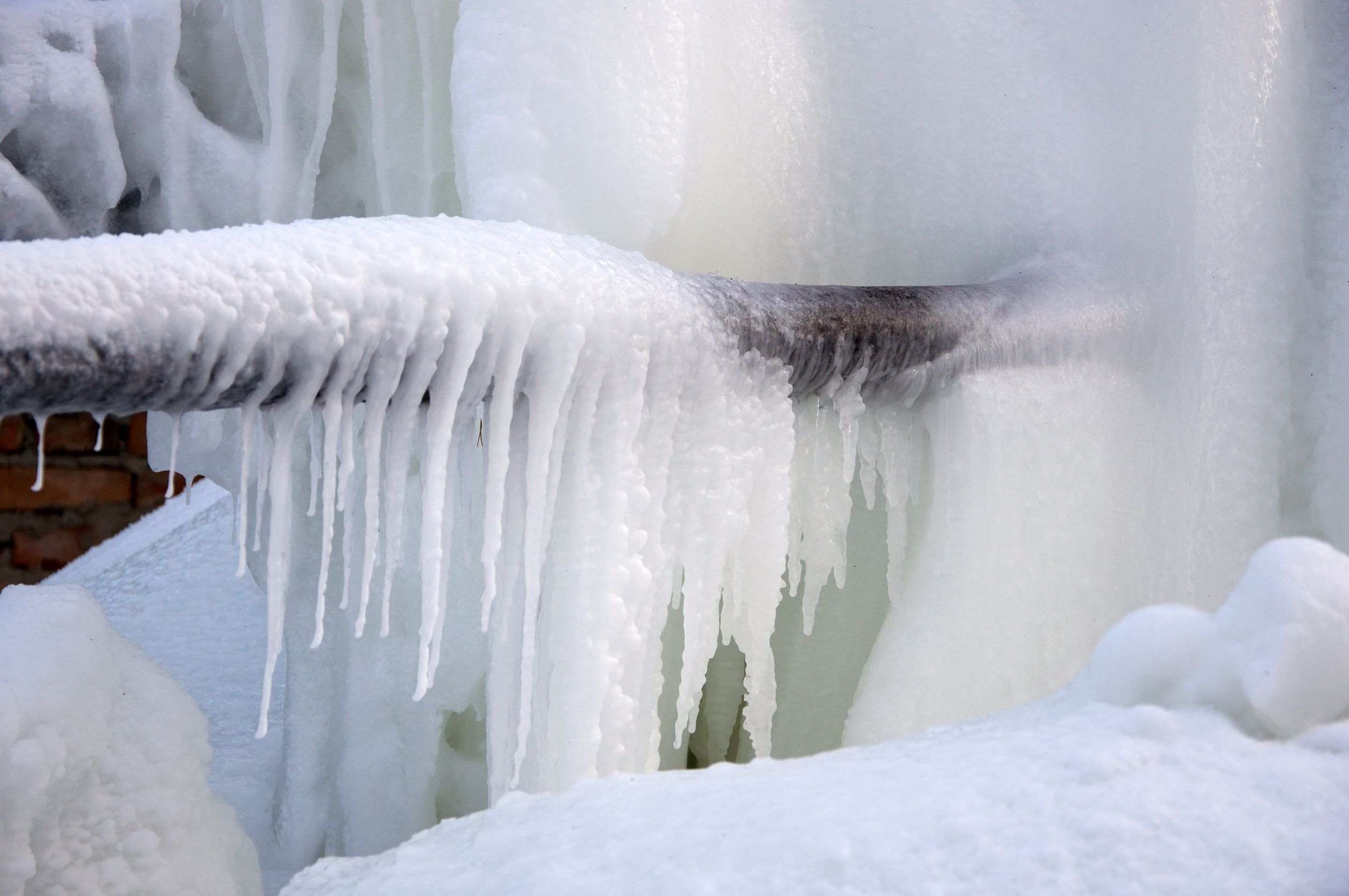Safeguarding Your Pipes from Cold Weather Issues: Critical Strategies
Safeguarding Your Pipes from Cold Weather Issues: Critical Strategies
Blog Article
We have encountered this post relating to Prevent Frozen Pipes below on the web and figured it made sense to share it with you here.
:strip_icc()/snow-outdoor-faucet-pipes-4af65d1e5e904fb1aa7bf74071fe5d89.jpg)
Cold weather can wreak havoc on your plumbing, particularly by freezing pipes. Here's exactly how to avoid it from occurring and what to do if it does.
Introduction
As temperatures drop, the threat of icy pipelines boosts, potentially resulting in costly repairs and water damages. Recognizing exactly how to avoid frozen pipelines is vital for house owners in cold environments.
Prevention Tips
Insulating prone pipes
Cover pipes in insulation sleeves or make use of heat tape to shield them from freezing temperatures. Concentrate on pipelines in unheated or exterior locations of the home.
Home heating methods
Keep indoor areas appropriately warmed, particularly locations with plumbing. Open closet doors to allow warm air to flow around pipes under sinks.
Exactly how to recognize frozen pipes
Try to find lowered water flow from faucets, uncommon smells or noises from pipes, and noticeable frost on revealed pipelines.
Long-Term Solutions
Architectural changes
Consider rerouting pipelines far from outside wall surfaces or unheated locations. Add additional insulation to attics, basements, and crawl spaces.
Updating insulation
Buy high-grade insulation for pipelines, attics, and walls. Correct insulation aids preserve consistent temperature levels and lowers the threat of icy pipes.
Protecting Outdoor Pipes
Yard pipes and outdoor taps
Separate and drain garden tubes before winter season. Mount frost-proof faucets or cover outdoor taps with insulated caps.
Recognizing Frozen Pipelines
What triggers pipes to freeze?
Pipelines freeze when revealed to temperatures listed below 32 ° F (0 ° C) for extended periods. As water inside the pipelines freezes, it increases, putting pressure on the pipeline wall surfaces and possibly triggering them to burst.
Threats and damages
Icy pipes can result in supply of water disruptions, residential or commercial property damages, and expensive repair services. Ruptured pipelines can flooding homes and cause comprehensive structural damage.
Indications of Frozen Water Lines
Recognizing icy pipelines early can avoid them from rupturing.
What to Do If Your Pipes Freeze
Immediate actions to take
If you think frozen pipelines, maintain taps available to ease pressure as the ice thaws. Make use of a hairdryer or towels taken in hot water to thaw pipelines gradually.
Conclusion
Preventing icy pipes requires aggressive steps and fast actions. By comprehending the reasons, indications, and safety nets, house owners can protect their pipes during cold weather.
Helpful Tips to Prevent Frozen Pipes this Winter
UNDERSTANDING THE BASICS: WHY PIPES FREEZE AND WHY IT’S A PROBLEM
Water freezing inside pipes is common during the winter months, but understanding why pipes freeze, and the potential problems it can cause is crucial in preventing such incidents. This section will delve into the basics of why pipes freeze and the associated problems that may arise.
THE SCIENCE BEHIND FROZEN PIPES
When water reaches freezing temperatures, it undergoes a physical transformation and solidifies into ice. This expansion of water as it freezes is the primary reason pipes can burst. As the water inside the pipe freezes, it expands, creating immense pressure on the walls. If the pressure becomes too great, the pipe can crack or rupture, leading to leaks and water damage.
FACTORS THAT CONTRIBUTE TO PIPE FREEZING
Low Temperatures: Extremely cold weather, especially below freezing, increases the risk of pipes freezing. Uninsulated or Poorly Insulated Pipes: Pipes located in unheated areas, such as basements, crawl spaces, or attics, are more prone to freezing. Insufficient insulation or lack of insulation altogether exacerbates the problem. Exterior Wall Exposure: Pipes running along exterior walls are susceptible to freezing as they encounter colder temperatures outside. Lack of Heating or Temperature Regulation: Inadequate heating or inconsistent temperature control in your home can contribute to frozen pipes. PROBLEMS CAUSED BY FROZEN PIPES
- Pipe Bursting: As mentioned earlier, the expansion of water as it freezes can cause pipes to burst, resulting in significant water damage.
- Water Damage: When pipes burst, it can lead to flooding and water damage to your property, including walls, ceilings, flooring, and personal belongings.
- Structural Damage: Prolonged exposure to water from burst pipes can compromise the structural integrity of your home, leading to costly repairs.
- Mold and Mildew Growth: Excess moisture from water damage can create a favorable environment for mold and mildew growth, posing health risks to occupants.
- Disrupted Water Supply: Frozen pipes can also result in a complete or partial loss of water supply until the issue is resolved.
WHY CERTAIN PIPES ARE MORE PRONE TO FREEZING
- Location: Pipes located in unheated or poorly insulated areas, such as basements, crawl spaces, attics, or exterior walls, are at higher risk of freezing.
- Exterior Pipes: Outdoor pipes, such as those used for irrigation or exposed plumbing, are particularly vulnerable to freezing as they are directly exposed to the elements.
- Supply Lines: Pipes that carry water from the main water supply into your home, including the main water line, are critical to protect as freezing in these lines can affect your entire plumbing system.
- Underground Pipes: Pipes buried underground, such as those connected to sprinkler systems or outdoor faucets, can be susceptible to freezing if not properly insulated.
https://busybusy.com/blog/helpful-tips-to-prevent-frozen-pipes-this-winter/

I stumbled upon that post on Preventing and dealing with frozen pipes when doing a lookup on the internet. Are you aware of another person who is serious about the niche? Feel free to promote it. Thanks for going through it.
Go Deal Report this page